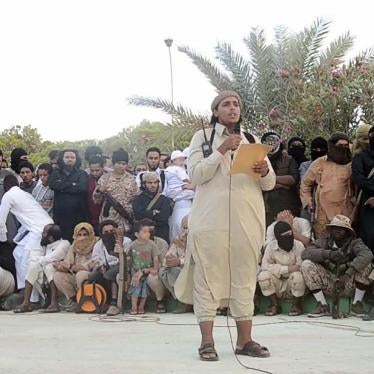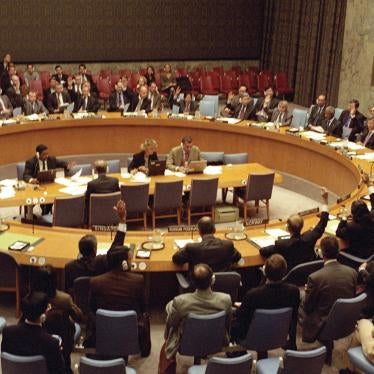Last week's decision by the Special Tribunal for Lebanon to release Jamil al-Sayyed and three other high-ranking Lebanese security officials was a victory for the basic principle that no one should be detained for a lengthy period without charge. The decision's political and judicial impact is still unfolding but it has already focused public attention on the flaws in the Lebanese justice system that led to the 44-months detention.
While much of the controversy has focused on whether politicians interfered in the judiciary, the debate has also touched upon the laws and practices that made such a lengthy pre-trial detention possible in the first place. The Lebanese Minister of Justice has been quick to propose amending the Code of Criminal Procedure to strengthen limits on the duration of "preventive arrest." While the proposed amendment is welcome, it will not be sufficient. What is needed is a broader reform effort to modify the way the Lebanese judiciary relies on "preventive arrest."
At the heart of the debate is for how long and under what circumstances can the state hold someone in pre-trial detention. The answer to this question will impact the majority of detainees in Lebanon. According to the Internal Security Forces, out of the 5,122 persons detained in Lebanon's jails, 3,207have not yet faced any trial. The statistics do not specify how long these people have been in prison, but interviews with lawyers and social workers who visit them indicate that many have been there for a long time.
According to international standards, pre-trial detention of persons - before and after charged with a criminal offense - should be the exception rather than the rule. This restrictive approach to the use of pre-trial detention derives from the fundamental nature of the right to personal liberty and the internationally recognized right of an accused to be presumed innocent until proven guilty. Pre-trial detention should only be imposed as a precautionary measure in cases where the proper administration of justice requires it; for example to prevent flight of the accused, interference with evidence, or the recurrence of a crime. While international law has not set specific time limits on pre-trial detentions, it has set clear guidelines requiring the authorities to justify any pre-trial detention and ensure such detention is reviewed at regular intervals by a judicial authority.
In Lebanon, the Code of Criminal Procedure (CCP) recognizes that pre-trial detention should be an exceptional measure, even if in practice, pre-trial detention remains very frequent. Under Article 107 CCP, the investigative judge can order the detention of a suspect only if pre-trial detention is necessary to preserve evidence, protect witnesses, or prevent the suspect from escaping or committing another crime. While the CCP also attempts to place time limits on the duration of pre-trial arrest, it leaves some important loopholes. Article 108 CCP sets no time limits on the duration of an arrest in cases where an individual is suspected of a felony related to "murder, drugs, attacks on the security of the state, or other felonies affecting public safety." While we don't know how many detainees fall through the cracks of this provision and find themselves in jail for years while they await trial, the number is likely to be in the hundreds given that 3,207 persons are being detained without having been sentenced for any crime.
The Minister of Justice proposed over the weekend an amendment to Article 108 that would ensure that pre-trial detention in serious crimes is capped to a maximum of six months, renewable once. While the proposed amendment is important, it should be accompanied by additional reforms. First, other loopholes in the CCP need to be tackled. In particular, the Minister of Justice should also propose to amend Article 363 CCP which exempts cases before the judicial council - a tribunal that adjudicates on high-profile cases including threats to national security - from complying with time limits fixed for pre-trial detentions.
Second, and most importantly, the state should develop a broader strategy to reduce the cases of lengthy pre-trial detentions. Such a strategy should include (i) a stricter application of Article 107 CCP which requires that any decision to detain someone prior to trial be justified on the basis of "realistic and material reasons," (ii) the emphasis on alternative measures to detention that can also ensure that a suspect will show up at trial, such as bail and regular reporting to the police and (iii) guarantees that detainees can challenge their pre-trial detention at regular judicial hearings.
Lebanese authorities cannot justify holding people for lengthy periods because the judicial body is too over-burdened or has inadequate resources. Some may object that a stricter policy on pre-trial detention might result in the release of some suspects who have committed crimes. The answer to this is to ensure that the justice system, once it has identified someone as a suspect , brings them to trial speedily and fairly, so their guilt or innocence can be proven. No one should be held in jail for long periods without facing trial. This should be a point that all Lebanese can agree on.






